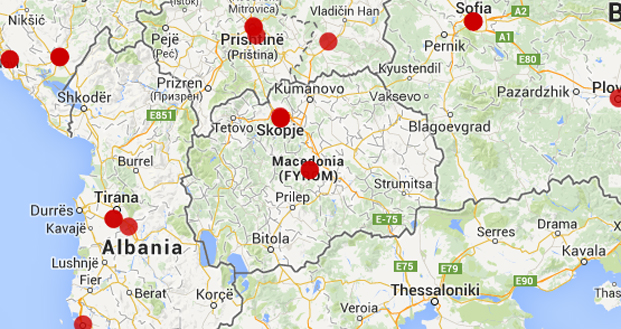
Index on Censorship and Osservatorio Balcani e Caucaso are joining forces to map the state of media freedom in Europe. With your participation, we are mapping the violations, threats and limitations that European media professionals, bloggers and citizen journalists face everyday. We are also collecting feedback on what would support journalists in such situations. Help protect media freedom and democracy by contributing to this crowd-sourcing effort.
Journalists have raised concerns over a new round of amendments to Macedonia’s Law on Audio and Audiovisual Media Services (LAAMS).
According to the Association of Journalists of Macedonia, the changes increase the role of the director of the Agency for Audio and Audiovisual Media Services in disciplining media. The government can now also subsidise up to 50% of domestic film production costs for private media.
“We find this problematic because it brings risk that the government will influence even more national media by using public funds to cause certain content to be produced and broadcast. In our opinion this should be banned. Obligatory domestic production should be reduced taking into account its financial implication on the media,” Dragan Sekulovski, executive director of the Association told Index on Censorship.
For its part, the agency claims that the law’s aim is to promote media freedom.
“The suspicion for censorship is ill-founded, since, according to the constitution of the Republic of Macedonia, censorship is forbidden,” Maja Damevska, spokesperson for the agency, told Radio Free Europe/Radio Liberty. “The regulatory body takes care only of proper implementation of the media legislation and therefore has never undertaken a measure or an action that can be considered censorship.”
More reports from Macedonia via mediafreedom.ushahidi.com
Macedonian Court does not recognise violation of the right to freedom of expression
Macedonian contributor attacked over contribution to Freedom House report
Police officer infringes journalist’s phone data privacy
Telma TV under government pressure
Police pressure journalists during protests in Skopje
This article was posted on Sept 12, 2014 at indexoncensorship.org





